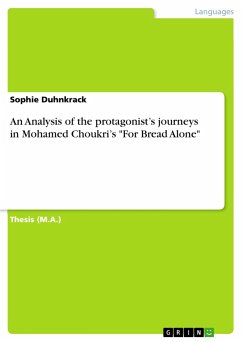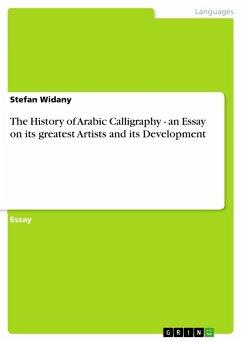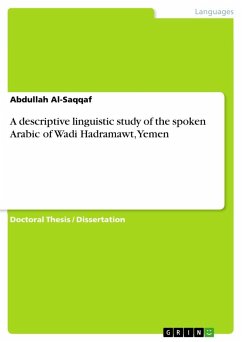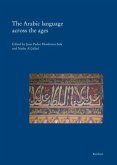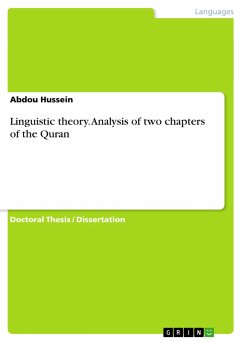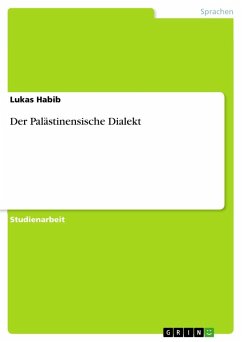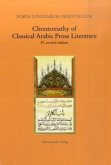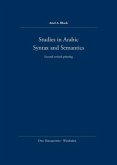Thesis (M.A.) from the year 2009 in the subject Orientalism / Sinology - Arabistic, grade: 90, Ben Gurion University, course: Arabic Literature, language: English, abstract: In 1973 the English translation-For Bread Alone-of Mohamed Choukri's Al-Khubz Al-Hafi was published. This first part of Choukri's extraordinary autobiography is written in a very simplistic style, which Paul Bowles, the translator of For Bread Alone, also described as a "technique:" Choukri's narration is the work of an "illiterate" who has not yet learned "to classify what goes into his memory" (5). The novel illustrates the protagonist's struggle to survive under exceptionally difficult circumstances, namely extreme poverty and violence. Indeed, Mohmed Choukri states that "all my life has been a response to one challenge after the other." The novel is constructed as a rihla (journey)- both an earlier 'external' one of physical movement, and a later one, which this paper will describe as 'internal.' First this paper will explore the external journey, which leads the protagonist Mohamed to different cities and places, and it will analyze the language, structure and content which express this travel; this first journey is dominated by his family, whose relationship with Mohamed is also central to this study. Furthermore it will examine the transition from this journey to the internal one by means of the content and the structure of the text. The internal rihla, which prevails in the second part of the novel and which the paper will address by means of the text's language and content, obviously is not separate from the external journey since the story is about the development of one and the same person. The second journey, that describes his existence as a teenager, replaces the first physical one, lived as a child. However, this paper will divide the two rihlas in order to carve out its differences and to show Mohamed's development, which eventually leads to his emancipation through literacy. Finally, the paper will address some personal impressions and remarks on the novel.
Hinweis: Dieser Artikel kann nur an eine deutsche Lieferadresse ausgeliefert werden.
Hinweis: Dieser Artikel kann nur an eine deutsche Lieferadresse ausgeliefert werden.

